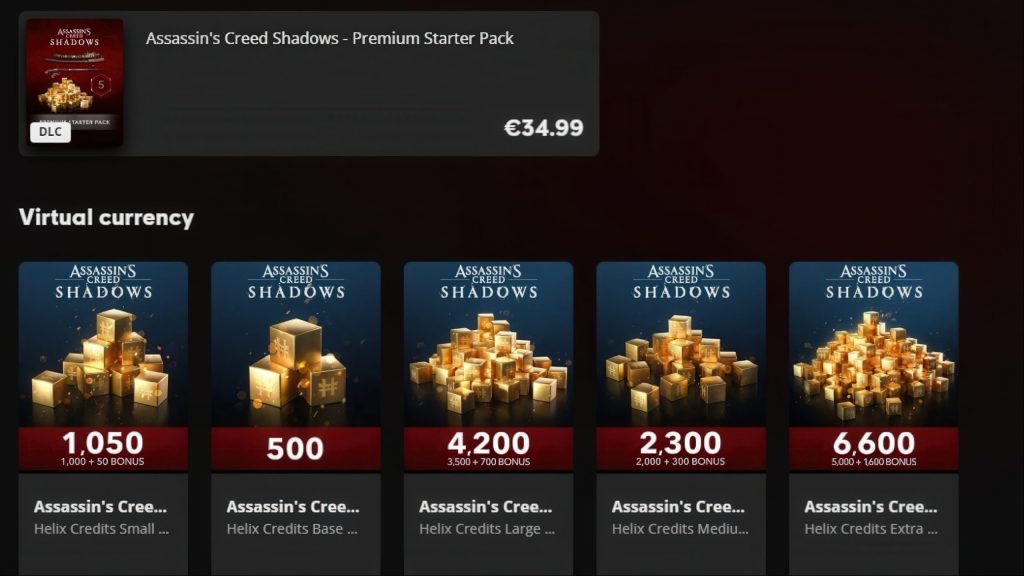In a move that has stirred controversy among the gaming community, Ubisoft recently declared in their annual financial report that microtransactions enhance the enjoyment of premium games. This assertion is particularly contentious as it directly challenges the conventional understanding of premium game pricing and player expectations. Many gamers are expressing their displeasure, arguing that the fundamental experience of a paid game should not be augmented by additional costs.
Ubisoft’s View on Microtransactions
On page ten of their report, Ubisoft states, “The adoption of monetization and engagement policies that respect the player experience and are sustainable in the long term.” They further emphasize their commitment to letting players fully enjoy their games without mandatory extra spending. According to the company, microtransactions allow players to personalize their avatars or expedite their progress, making the gameplay more enjoyable; however, these features are presented as optional. This perspective reflects the ongoing trend of integrating microtransactions into the gaming industry, even for titles that already have a purchase price.
Community Reactions: A Backlash from Gamers
The introduction of microtransactions into premium games is not entirely novel for Ubisoft. The practice began with the release of 2017’s Assassin’s Creed Origins, marking the company’s shift towards this monetization model. Critics argue that while optional cosmetic items might seem harmless, the additional costs can detract from the overall gaming experience. Many players feel that they are coerced into spending more, undermining the value of a game they’ve already purchased.
Player sentiment largely aligns with the idea that microtransactions should be reserved for free-to-play models, where they enable developers to generate revenue while still providing complimentary access to gameplay. An overwhelming 90% of gamers have expressed concerns that the implementation of microtransactions in full-priced games alters the integrity of the game and diminishes the experience of players who do not wish to spend extra money on in-game purchases, according to a survey conducted by PC Gamer.
This backlash against microtransactions is indicative of broader trends within the gaming community, where many gamers are increasingly vocal about their expectations for value in premium titles. Such sentiments were also highlighted in a recent article by GamesIndustry.biz, which reported that traditional gaming audiences are becoming less tolerant of practices perceived as exploitative, with calls for a return to experiences that prioritize gameplay over monetization.
Historical Context: The Evolution of Monetization
Ubisoft is not alone in its integration of microtransactions into premium titles, as this trend has been seen across the industry. Major publishers like Electronic Arts and Activision have faced similar criticism. The rise of this monetization strategy can be traced back to a significant shift in how the gaming industry operates, particularly following the success of free-to-play games that leveraged microtransactions to drive revenue.
Notably, the debate around microtransactions recalls the contentious introduction of downloadable content (DLC) in the late 2000s, which similarly divided players. Companies argued that DLC provided added value, while many gamers saw it as a way to extract more money from consumers after a game was already purchased. This pattern appears to be repeating with microtransactions, as developers find themselves navigating a fine line between enhancing the player experience and alienating core audiences.
As players become more discerning, they are increasingly demanding transparency and ethical monetization practices. A growing number of consumers are vocalizing their preferences for games that respect their investment, driven by movements advocating for fair treatment in digital transactions. These expectations are prompting developers, including Ubisoft, to re-evaluate their strategies in an effort to maintain player trust and satisfaction.
Ubisoft’s Future: Navigating the Player Experience
In light of the intense community backlash, Ubisoft faces the challenging task of balancing their monetization strategies against player expectations. With the announcement of a new subsidiary, led by Charlie Guillemot, alongside recent investments from Tencent, Ubisoft may seek to recalibrate their approach to player engagement and monetization. As the gaming landscape continues to evolve, the company will need to address these concerns head-on to foster a more positive relationship with their audience.
The future of premium titles may hinge on how effectively companies like Ubisoft can innovate while respecting the principles of fair pricing and player trust. With the growing significance of player feedback, the industry may soon see a pivotal shift in monetization strategies that prioritizes player experience over revenue generation.

